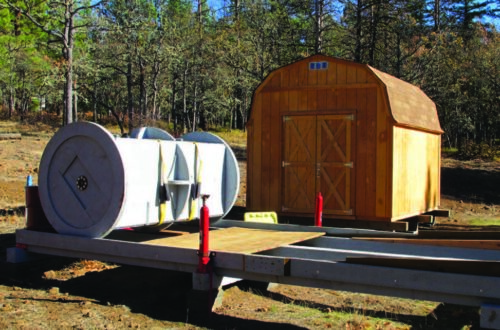Plan B is short and simple, reflecting your values, while forcing minimum complexity on family and friends.
Do you have a Plan?
I spend a lot of time talking to people about their End-of-Life plans. My coffin and cemetery business has a way of making that an easy topic of discussion for me. As soon as people ask me what I do, the conversation trends to what they want to have happen to their bodies after they die. Either they’ve thought about it, or they haven’t. Either way, they’ve told someone, or they haven’t. If it’s written, it’s usually “in the will”, a document often unread until well after whatever sharing plans have become obsolete. This is called “not being prepared.”
Preparing is good. It’s not pleasant to learn Mom really wanted a natural burial, described so carefully in her will that gets read days or weeks after she’s been embalmed or cremated. It’s even more difficult if she’s told one sibling she wanted one thing, and another sibling she wanted something else, back when she was still undecided and changing her mind a lot, leaving both arguing about what she’d said she wanted, and both being right.
Plan A and Plan B (“B” is for “Bus”)
As I prod all my immortal friends to consider that maybe their earthly coil is shorter than they’re expecting, two types of plans seem to come to light. The first type tends to be either elaborate and imaginative – usually some form of the “Viking Funeral” – or it’s simple and impractical, along the lines of “just throw me in a hole” or “feed me to wild animals”. In the former, it’s presumed a burn permit or disposable boat beyond the three-mile limit is available. In the latter, a cadre of staunch friends will meet at midnight, heist your body from the hospital or morgue, and drive you out into the desert, a la Edward Abbey, to lay you out, while toasting with cheap Scotch. In either case – or the infinite range of options in between – this is what
I call Plan A; it’s the wordy plan, the fancy plan, the one that can keep changing, with your mood, your finances, and the vagaries of your frontal lobe.
The second type is the more important (as well as the least attended to) plan for what you want. If you die tomorrow, or next week, or in an accident that’s totally unforeseen, when shock immobilizes everyone, it’s hard for those who love you to make any decisions at all. Trying to distill your Plan A into something that fits next week’s budget, geographies, and schedules becomes a problem. You want Plan A. You need Plan B.
Plan B – Make it Short, Simple, and Values-Driven
Plan B is short and simple, reflecting your values, while forcing minimum complexity on family and friends. Make the big decisions for them, and give them some suggestions about the little ones.
So:
1) Choose your disposition – burial in the earth or cremation, and state why you want it.
2) Be clear about how you want your body managed. If you don’t care if you’re embalmed, say so. If you fall off a mountain in Tibet and have to come back by jet, embalming you there is simpler and cheaper than flying you home in a sealed, refrigerated box. There are natural embalming fluids, and one COULD fly those out more affordably than they can fly you back. Cremating you there is even better, but your family will want your explicit permission to do so. In advance.
3) Don’t forget the party instructions; Do you want a funeral with your body present, waked and toasted over till the early morning hours, or do you want an anonymous Eleanor Rigby affair? Now, later or both?
Anticipate the questions family will have, because that’s real preparation. If you require burial, can they do it anywhere that’s convenient? Or have you bought a plot somewhere, saving them the trouble of finding it fast? If you’re cremated, can your ashes be “parted out” into diamonds, fireworks and blown glass, or should your ashed corpus remain whole? If you wish to be buried, do you want to be a tree? A pollinator hedgerow? A crop? Any ideas where? (And remember the donation options!) State your preferences, but leave plenty of room for improvisation.
Stating your preferences is better than indifference. Provide guidance for the decision-makers who must come to quick agreement. They will be happiest if they know they’re doing what you wanted. Stipulating what you want to happen to you, if the end comes fast, without any time to prepare, is a great gift to the ones who will manage your life’s last wishes. Leaving a prepaid final expense funeral plan is even better.
Cynthia Beal is the founder of the Natural Burial Company, the impulse behind the Sustainable Cemetery Studies Lab at Oregon State University, and the owner of two Lane County historical cemeteries in Eugene and Junction City, Oregon. You can download a free Natural Funeral Planner at www.naturalburialcompany.com Visit Natural Burial on Facebook at https://www.facebook.com/natural.burial.company/ and join the conversation.






